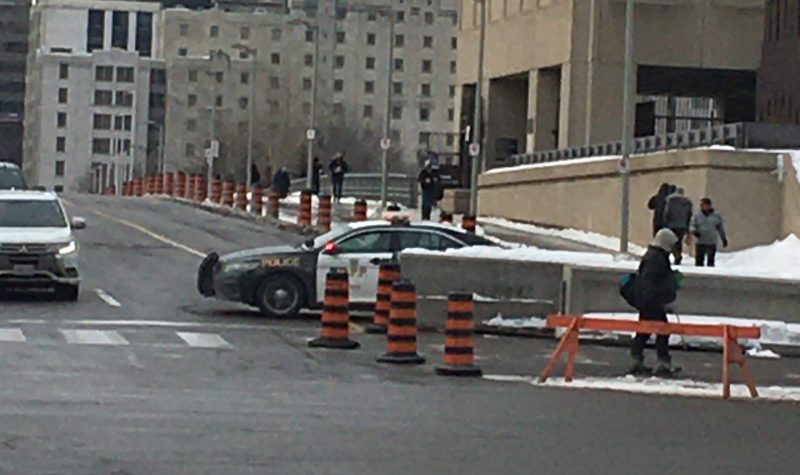As the second week of anti-mandate demonstrations at Parliament Hill continues, the response by the Ottawa Police Service and city officials is under fire by some local residents.
Ottawa Mayor Jim Watson declared a city-wide state of emergency on Sunday in a move which some city councillors are calling “performative.”
A special meeting of city council on Monday inflamed tensions between city councillors after Kitchissippi Ward Coun. Jeff Leiper moved to postpone regular committee and council meetings to allow councillors in affected areas to focus on the occupation. The motion was denied, losing 10 - 14.
Catherine McKinney, councillor for Somerset Ward, which encompasses downtown Ottawa, Lebreton Flats, and Centretown and Centretown West, expressed their disappointment at the motion’s outcome.
“The Federal Government of Canada has lost control of its capital,” said McKinney. “The City of Ottawa has lost control of its residential neighbourhoods. Both have fallen to a mob.”
Council met again on Wednesday to discuss their regular agenda and ultimately approved McKenney's motion, delaying regular meetings until after Feb. 18.
Robin Browne, co-lead of Ottawa’s 613-819 Black Hub, has advocated for the defunding of the Ottawa Police Service (OPS) for years. He says the OPS response to the convoy’s occupation is “the best argument” to defund the police.
“If these truckers were Black, we all know what would be happening,” says Browne. “They’d bring in the riot squad, there would be tear gas, they would bring in the big trucks to haul them. It's a double standard and is a racist one.”
He asserts that the police handling of BIPOC protesters differs drastically from the way they have addressed the situation downtown.
In 2020, Ottawa police arrested 12 demonstrators for shutting down an intersection at Laurier Avenue and Nicholas Street. The protesters, who were young people of colour, according to Browne, were acting in response to the acquittal of Const. Daniel Montsion in the death of Abdirahman Abdi.
“Knowing that those folks had a meeting set up with councillors and members of the police for the next day and [that] they would likely end the protest, Sloly sent the police at three o'clock in the morning, broke up the protests violently, and charged 12 of them,” says Browne. “Those charges hung over their heads for a year.”
Browne believes the OPS handling of the convoy has been deliberately slow. He indicates that the police took over a week to begin ticketing and charging demonstrators at Parliament Hill and in the downtown region.
“They should have been arresting a lot more people this time, because people are running around and breaking the law,” says Browne.
Browne isn’t alone in his suspicions regarding OPS conduct.
On Monday, city councillors also questioned who would foot the bill for the more than $1-million daily operational costs of the occupation. OPS Chief Peter Sloly assured council that the costs would not impact the police budget, saying they had already appealed to the federal and provincial governments for financial help.
Leiper asked Sloly if the police are “as reticent as they were a week ago to enforce the law.”
Sloly says he is “100 per cent committed” to ending the conflict lawfully and without violence, but indicated that police resources are spread thin.
“I know you want a simple answer to a very straightforward question,” says Sloly. “I cannot give you that.”
On Friday, the OPS announced it would implement a “surge and contain” strategy to “prevent and reduce the impacts of demonstrators entering the downtown core and improve neighbourhood safety.”
On Monday, Sloly said the strategy was largely successful, citing the dismantling of demonstrator camps at Confederation Park and Coventry Road.
McKenney says the situation for their constituents, many of whom reside in affected areas, has only worsened since the convoy arrived.
“I am more worried for my residents today…than I was last Monday,” says McKenney. “I can tell you that for anyone who thinks that this past weekend was more successful than last has not considered what that means for residents. Residents were living in terror this past weekend.”
The police have so far made over 20 arrests in relation to the demonstrations. They are investigating over 85 criminal offences, including attempted arson at an apartment building on Lisgar Street.
Listen to the CHUO News story below:


